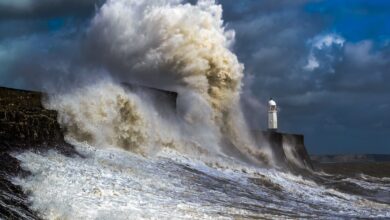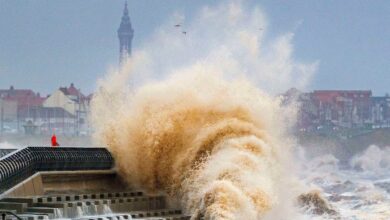World ‘woefully underprepared’ for massive volcano catastrophe, scientists warn

Governments have “woefully underprepared” for the impact of a massive volcanic eruption, which could disrupt supply chains, have lasting effects on the climate and hit global food supplies, scientists have warned.
The lack of preparation is because there is a “broad misconception” that the risk posed by volcanic eruptions is low, the experts from the University of Cambridge’s Centre for the Study of Existential Risk and University of Birmingham, have said.
In an article in the journal Nature, the team said governments’ collective lack of investment in planning, monitoring and responding to potential volcanic disaster was “reckless”.
Dr Lara Mani, an expert in global risk, and a co-author of the article said: “Data gathered from ice cores on the frequency of eruptions over deep time suggests there is a one-in-six chance of a magnitude seven explosion in the next one hundred years. That’s a roll of the dice.
“Such gigantic eruptions have caused abrupt climate change and collapse of civilisations in the distant past.”
The team said that while the risks are currently under-estimated, “long overdue” steps can be taken to reduce the impact of the devastation a massive volcanic eruption would cause. These include improved surveillance, increased public education and magma manipulation.
Dr Mani said the potential risk posed by a giant volcanic eruption could be compared to a 1km-wide asteroid crashing into Earth.
Such events would have similar climatic consequences due to the enormous amount of debris blasted into the air, but the team said the likelihood of a volcanic catastrophe is hundreds of times higher than the combined chances of an asteroid or comet collision.
“Hundreds of millions of dollars are pumped into asteroid threats every year, yet there is a severe lack of global financing and coordination for volcano preparedness,” Dr Mani said.
“This urgently needs to change. We are completely underestimating the risk to our societies that volcanoes pose.”
A volcanic eruption in Tonga in January this year was the largest volcanic event ever instrumentally recorded.
The research team said that if it had gone on longer, released more ash and gas, or occurred in an area full of critical infrastructure – such as the Mediterranean – then global shock waves “could have been devastating”.
“The Tonga eruption was the volcanic equivalent of an asteroid just missing the Earth, and needs to be treated as a wake-up call,” Dr Mani said.
The team examined recent research detecting the regularity of major eruptions by analysing evidence of sulphur spikes in ancient ice samples.
An eruption ten to a hundred times larger than the Tonga blast occurs once every 625 years – twice as often as had been previously thought.
“The last magnitude seven eruption was in 1815 in Indonesia,” said co-author Dr Mike Cassidy, a volcano expert and visiting CSER researcher, now based at the University of Birmingham.
“An estimated 100,000 people died locally, and global temperatures dropped by a degree on average, causing mass crop failures that led to famine, violent uprisings and epidemics in what was known as the year without summer,” he said.
“We now live in a world with eight times the population and over forty times the level of trade. Our complex global networks could make us even more vulnerable to the shocks of a major eruption.”
Financial losses from a large magnitude eruption “would be in the multi-trillions”, with impacts on a comparable scale to the pandemic, the researchers said.





